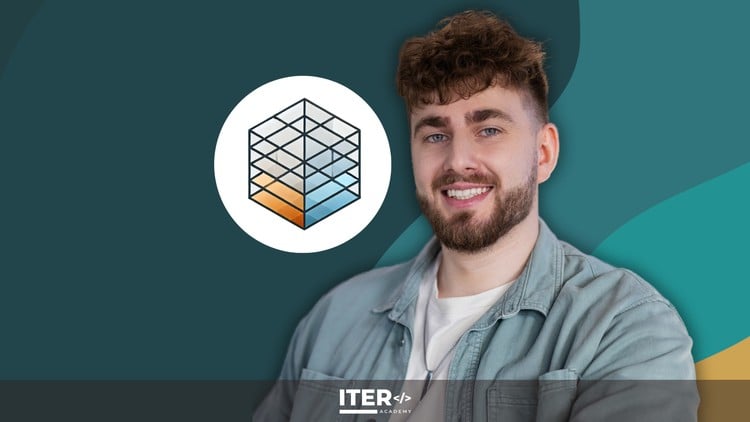
Object Oriented Programming (OOP), Classes, Objects, Encapsulation, Inheritance, Polymorphism, SOLID and more
⏱️ Length: 3.5 total hours
⭐ 4.50/5 rating
👥 22,004 students
🔄 January 2025 update
Add-On Information:
“`html
Note➛ Make sure your 𝐔𝐝𝐞𝐦𝐲 cart has only this course you're going to enroll it now, Remove all other courses from the 𝐔𝐝𝐞𝐦𝐲 cart before Enrolling!
-
Course Overview: Java OOP: Object Oriented Programming with Exercises – 2025
- This concise course, updated in January 2025, transforms your Java understanding by grounding you firmly in Object-Oriented Programming (OOP) principles. Its efficient 3.5 total hours deliver maximum impact.
- Dive into the core philosophy of structuring software with objects, moving beyond basic syntax to design elegant, modular, and scalable Java applications reflecting real-world entities.
- Explore essential OOP pillars through practical, hands-on exercises that cement learning and demonstrate immediate application in coding scenarios.
- Benefit from over 22,000 students rating this course an impressive 4.50/5, ensuring you’re investing in a proven, highly effective learning journey.
- Understand why OOP dominates enterprise software development and how mastering its principles builds robust, maintainable, and extensible codebases.
- Conceptualize problems in an object-oriented way, laying a solid foundation for tackling complex software challenges and contributing effectively to professional teams.
- Engage with structured examples and guided exercises, reinforcing each concept and ensuring practical implementation ability.
-
Requirements / Prerequisites
- A foundational understanding of Java syntax, including variables, data types, control flow, and basic method creation. This course builds upon, rather than introduces, these basics.
- Familiarity with an Integrated Development Environment (IDE) like IntelliJ IDEA, Eclipse, or VS Code for writing and running Java code.
- A computer with a Java Development Kit (JDK) installed and configured. Practical exercises require a working Java environment.
- A genuine curiosity for software structure and an eagerness to apply best practices in designing clean, efficient, and scalable code.
- A willingness to engage actively with coding exercises and a problem-solving mindset throughout the course.
-
Skills Covered / Tools Used
- Designing Object Models: Translate real-world problems into well-defined classes and objects, creating intuitive and manageable software structures.
- Data Hiding and Access Control: Master techniques for safeguarding internal object states and controlling data access, crucial for secure, bug-resistant applications.
- Building Flexible Hierarchies: Develop expertise in crafting reusable code through effective class inheritance, promoting code economy and reducing redundancy.
- Dynamic Behavior Implementation: Apply polymorphism to write flexible code that adapts to different object types at runtime, making applications more adaptable and robust.
- Architecting for Maintainability: Apply core SOLID principles to write code that is easy to extend, modify, and test, adhering to industry-standard design philosophies.
- Leveraging Standard Java Features: Gain proficiency in utilizing language constructs like abstract classes, interfaces, and the ‘super’ keyword for sophisticated and efficient solutions.
- Debugging and Problem Solving: Develop enhanced analytical skills to diagnose and resolve issues within object-oriented systems, understanding complex class interactions.
- Development Environment: Any modern Java IDE (Integrated Development Environment) such as IntelliJ IDEA, Eclipse, or Apache NetBeans is suitable for following exercises.
- Core Language: All exercises and explanations are based on the latest stable versions of Java, ensuring relevance and up-to-date practices.
-
Benefits / Outcomes
- Write Professional-Grade Java Code: Elevate your coding skills to produce maintainable, readable, and highly organized Java applications meeting industry standards.
- Accelerate Career Growth: Equip yourself with in-demand OOP knowledge, a fundamental requirement for roles in backend development, enterprise applications, and Android development.
- Simplify Complex Systems: Learn to break down daunting programming challenges into manageable, interconnected objects, making large-scale projects more approachable.
- Enhance Code Reusability and Modularity: Understand how to structure code for maximum component reuse and simplified future modifications, saving development time and effort.
- Boost Problem-Solving Acumen: Cultivate a more structured and logical approach to problem-solving, viewing challenges through an object-oriented lens.
- Confidently Tackle Advanced Topics: Build a robust conceptual framework, an indispensable prerequisite for delving into advanced Java frameworks like Spring Boot, Hibernate, or complex software architectures.
- Pass Technical Interviews: Be better prepared to answer conceptual and practical OOP questions, common in Java developer interviews.
- Immediate Practical Application: The hands-on exercise approach ensures you can immediately apply learned concepts to personal projects or professional work.
-
PROS
- Highly Rated and Student Approved: A 4.50/5 rating from over 22,000 students showcases a strong track record of effectiveness and learner satisfaction.
- Current and Relevant Content: The January 2025 update guarantees material is up-to-date with current Java practices and industry expectations.
- Concise and Focused: At just 3.5 total hours, it efficiently covers core OOP principles without fluff, ideal for busy learners seeking quick proficiency.
- Practical and Exercise-Driven: Emphasizes practical application through exercises, ensuring active learning and skill development.
- Foundational Skill Building: Provides a critical cornerstone for any Java developer, essential for progression to more advanced topics and frameworks.
- Expert-Led Content: Benefits from instructors who have distilled complex topics into understandable and actionable lessons.
-
CONS
- Requires Supplementary Practice for Mastery: While comprehensive for its length, the relatively short duration (3.5 hours) means sustained practice beyond the course content is essential for true mastery and fluent application skills.
“`
Learning Tracks: English,Development,Programming Languages
Found It Free? Share It Fast!